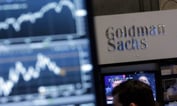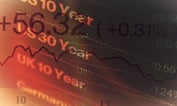What are the reasons and causes behind the “Flash Crash” on May 6, 2010? Does anybody know? What about the stock market’s latest tendency to convulse? People still want answers because nothing they’ve heard up until now is satisfying. As a result, some of them have resorted to good old-fashioned finger pointing.
This is the exactly the case, as evidenced by the recent Senate hearings on October 19, titled “Market Microstructure: Examination of Exchange-Traded Funds (ETFs).” The purpose of the meeting was to analyze the impact of ETFs on the financial markets, but instead, it found a good scapegoat.
The U.S. exchange-traded products or ETP market, which encompasses ETFs, has around $1 trillion in assets under management.
So far this year, the S&P 500 has experienced more than 60 consecutive days in which it has fluctuated by 1 percent or more during intraday trading. Who or what is behind the cause of this increased stock market volatility? A small but passionate group of anti-ETF crusaders argue that ETFs are to blame.
Andrew Sorkin of the New York Times calls ETFs the “new derivatives.” While statements like this are journalistically cute, they’re factually incorrect. ETFs never have been and never will be derivatives.
It’s true that certain ETFs do invest in derivatives to obtain their market exposure, but that’s not illegal, it’s always fully disclosed and there’s no empirical evidence whatsoever that it’s causing market disruptions of any kind.
Furthermore, ETFs, unlike other entities that invest in derivatives such as hedge funds, are closely regulated and fall under the Investment Company Act of 1940 or the Securities Act of 1933. Put another way, the regulatory requirements for ETFs are burdensome enough to appease even the most bureaucratic bureaucrat. Does an already heavily regulated industry need more regulation?








 November 23, 2011 at 07:00 PM
November 23, 2011 at 07:00 PM








